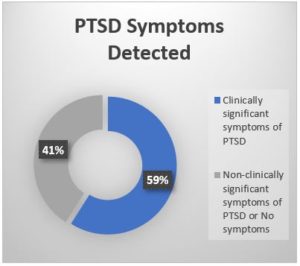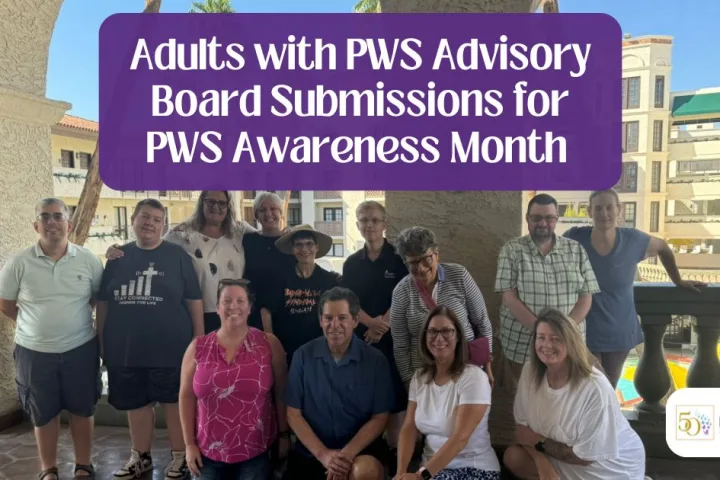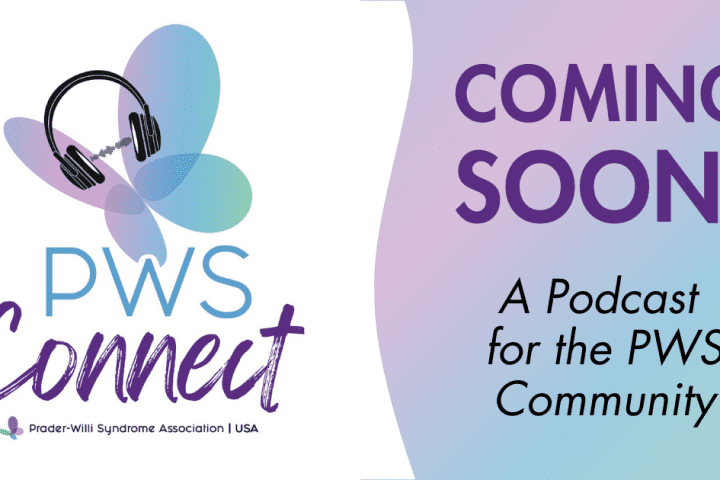Siblings of individuals with Prader-Willi syndrome (PWS) are often exposed to tantrums, psychiatric distress, health crises, and the extreme rigidity of their siblings. For some, this creates a traumatic and stressful home environment. Offsetting this exposure with positive experiences and therapies often helps siblings get through these challenges. Siblings of individuals with disabilities are at risk for developing anxiety, depression, and even post-traumatic stress disorder (PTSD).1
Parents caring for a child with disabilities may also be raising other children with hidden emotional and mental health concerns. The well-being of healthy siblings is often overlooked because parents, medical providers, and behavioral health providers tend to focus on caring for the child with the disability. However, siblings of individuals with developmental disabilities like PWS have an increased risk of developing behavioral and emotional problems and therefore, need attention and interventions to help them be resilient and live successfully with a sibling with PWS.2
In a recent study, 20% of parents reported that their healthy sibling, closest in age to the child with PWS, had moderate to severe psychological distress. When the siblings themselves were surveyed, a full 59% showed clinically significant symptoms of PTSD. 
What is Debriefing?
After a meltdown or other traumatic or stressful event, it is beneficial to sit down together as a family, without the child with PWS, and talk about what has just happened. Allowing everyone to express their thoughts and feelings, no matter what they are, can build connection, defuse intense emotion, and set the stage for family problem solving.
Why Debriefing is Important?
- Family cohesion increases when everyone is on the same page, especially during stressful events or outbursts.3
• A specific plan for these events can reduce the contention between family members and empower those trying to handle the situation.
• These debriefing sessions are a great way to express and understand emotions for each member of the family. It allows siblings to feel seen and heard - A discussion allows siblings to feel they are a part of the solution.
- Siblings and parents can learn from each other if there is an open and honest environment. Sharing perspectives will benefit everyone.
Some Ideas:
- The debriefing meeting can be structured with specific questions you systematically review or an informal discussion. Choose whatever style meets the needs of your family.
- Timing of the debriefing might work better after the child with PWS has gone to sleep. Maybe as part of the debriefing, unlock the pantry and share a treat together.
- Go around to each member and ask how they are feeling now and how they felt during the meltdown/event (make sure parents share as well).4
- Try to laugh about what happened. Humor is a great coping mechanism to help move forward. Your child with Prader-Willi syndrome can be hilarious. As one interviewed sibling said, “The hard times are funny after the fact.”
- Discuss what you could have done differently during the event to make it less negative on the family. Have a specific plan for different types of events. For example, give specific instructions on what a sibling is expected to do during a meltdown (e.g., go to your room, lock your door, put in your headphones and listen to music; walk across the street to your friend’s house; go get in the car).
- Discuss what everyone did well and what worked.
- Let the discussion flow and go wherever it goes.
- Try not to judge or invalidate anything said even if it is hurtful or hard to hear. It is okay if your child does not like their sibling with PWS sometimes, or they do not agree with how a parent handled the situation. Siblings need to be able to express their honest feelings and gain support from the most important adults in their lives.4
- Seek help from a professional when distress is persistent or affects the well-being of family members.
Children who grow up with a sibling with PWS are often inventive, resilient, and compassionate. However, witnessing someone you love be out of control or in danger is painful. Even the strongest of people can feel overwhelmed. Addressing these challenges openly allows all members of the family to get the care and support they need.
References
(1) Lauderdale-Littin, S., & Blacher, J. (2016). Young adults with severe intellectual disability: Culture, parent, and sibling impact. Journal of Intellectual & Developmental Disability, 42(3), 230–239. doi: 10.3109/13668250.2016.1230843
Contributed by Jane Thornton and Emma Thornton




 Perry A. Zirkel has written more than 1,500 publications on various aspects of school law, with an emphasis on legal issues in special education. He writes a regular column for NAESP’s Principal magazine and NASP’s Communiqué newsletter, and he did so previously for Phi Delta Kappan and Teaching Exceptional Children.
Perry A. Zirkel has written more than 1,500 publications on various aspects of school law, with an emphasis on legal issues in special education. He writes a regular column for NAESP’s Principal magazine and NASP’s Communiqué newsletter, and he did so previously for Phi Delta Kappan and Teaching Exceptional Children. Jennifer Bolander has been serving as a Special Education Specialist for PWSA (USA) since October of 2015. She is a graduate of John Carroll University and lives in Ohio with her husband Brad and daughters Kate (17), and Sophia (13) who was born with PWS.
Jennifer Bolander has been serving as a Special Education Specialist for PWSA (USA) since October of 2015. She is a graduate of John Carroll University and lives in Ohio with her husband Brad and daughters Kate (17), and Sophia (13) who was born with PWS. Dr. Amy McTighe is the PWS Program Manager and Inpatient Teacher at the Center for Prader-Willi Syndrome at the Children’s Institute of Pittsburgh. She graduated from Duquesne University receiving her Bachelor’s and Master’s degree in Education with a focus on elementary education, special education, and language arts.
Dr. Amy McTighe is the PWS Program Manager and Inpatient Teacher at the Center for Prader-Willi Syndrome at the Children’s Institute of Pittsburgh. She graduated from Duquesne University receiving her Bachelor’s and Master’s degree in Education with a focus on elementary education, special education, and language arts. Evan has worked with the Prader-Willi Syndrome Association (USA) since 2007 primarily as a Crisis Intervention and Family Support Counselor. Evans works with parents and schools to foster strong collaborative relationships and appropriate educational environments for students with PWS.
Evan has worked with the Prader-Willi Syndrome Association (USA) since 2007 primarily as a Crisis Intervention and Family Support Counselor. Evans works with parents and schools to foster strong collaborative relationships and appropriate educational environments for students with PWS. Staci Zimmerman works for Prader-Willi Syndrome Association of Colorado as an Individualized Education Program (IEP) consultant. Staci collaborates with the PWS multi-disciplinary clinic at the Children’s Hospital in Denver supporting families and school districts around the United States with their child’s Individual Educational Plan.
Staci Zimmerman works for Prader-Willi Syndrome Association of Colorado as an Individualized Education Program (IEP) consultant. Staci collaborates with the PWS multi-disciplinary clinic at the Children’s Hospital in Denver supporting families and school districts around the United States with their child’s Individual Educational Plan. Founded in 2001, SDLC is a non-profit legal services organization dedicated to protecting and advancing the legal rights of people with disabilities throughout the South. It partners with the Southern Poverty Law Center, Protection and Advocacy (P&A) programs, Legal Services Corporations (LSC) and disability organizations on major, systemic disability rights issues involving the Individuals with Disabilities Education Act (IDEA), Americans with Disabilities Act (ADA), and the federal Medicaid Act. Recently in November 2014, Jim retired.
Founded in 2001, SDLC is a non-profit legal services organization dedicated to protecting and advancing the legal rights of people with disabilities throughout the South. It partners with the Southern Poverty Law Center, Protection and Advocacy (P&A) programs, Legal Services Corporations (LSC) and disability organizations on major, systemic disability rights issues involving the Individuals with Disabilities Education Act (IDEA), Americans with Disabilities Act (ADA), and the federal Medicaid Act. Recently in November 2014, Jim retired.